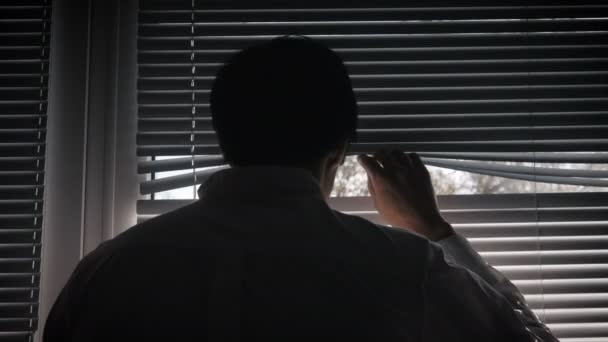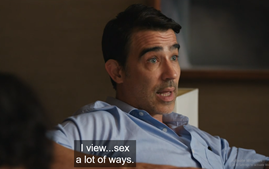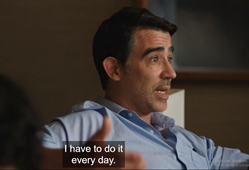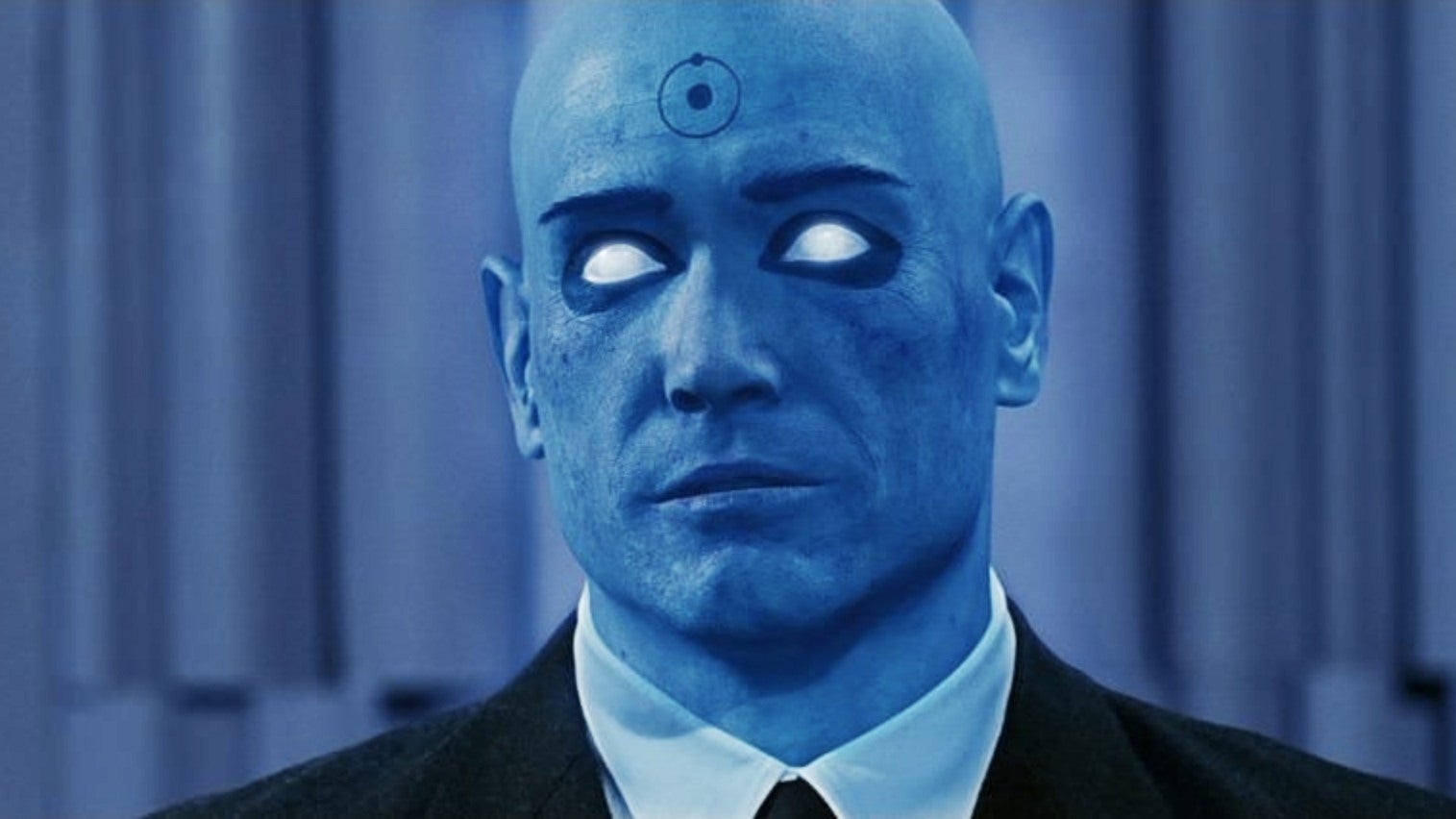Voyeurism has such negative connotations. You’re supposedly supposed to feel ashamed for eavesdropping, spying, and otherwise sticking your nose where it’s been told it doesn’t belong. What I’d like these hypothetical snobs to explain is why reality TV feels so good to watch. Regardless of how good you think reality TV is, you simply can’t help but be enthralled by the fly-on-the-wall spectacle of classic reality shows like THE REAL HOUSEWIVES or THE BACHELOR. Voyeur TV quietly reached prestige heights on SHOWTIME not too long ago with COUPLES THERAPY, a show that is explained entirely by the title. Dr. Orna Guralnik takes four couples into her office, sits them down, and then we watch a relationship die. The result is a collection of monologues, gently directed by Dr. Guralnik, that reveal the innermost thoughts of people in states of ongoing emotional crisis.

God damn do I love to Peeping Tom some marital problems
Fair warning, I’m going to spoil pretty much the entire show in this article. I don’t think it matters much because knowing the issues discussed doesn’t at all compare to witnessing lived experiences be spoken on with enormous passion. Also, you probably don’t have SHOWTIME, so fuck it, right?
The four couples each present a different relationship dynamic and expose unique sets of marital hardships. Mau and Annie, married 23 years, can’t seem to agree on anything other than that they love each other. But Mau’s carnal appetites and skewed expectations of Annie have driven them to a number of therapists, each of whom they only saw three times. Theirs is easily the spiciest relationship of the series, jam-packed with juicy arguments with clear winners and losers. The horned-up rapscallion Mau usually loses. It’s easy to see Mau as the heel of the show, what with his constant inability to self-reflect and insane sexual demands, but his problems stem from the same place as most of the other people on the show: deep-seated trauma.


The craven ramblings of a tortured soul
Sarah and Lauren have a diverse array of problems rather than one monster issue. They’ve been married a few years and Sarah wants a baby. She’s one of those people who sees herself as a natural caretaker and can’t imagine doing anything else with her life. Lauren’s skeptical because Sarah sees having a baby as a solution to problems rather than a serious undertaking, a skepticism made deeper by the fact that Lauren is the sole breadwinner of the household. Sarah’s stress deepens because she always has to initiate sex; she estimates that she initiates 70% of the time, which Lauren considered generous. But a complication stemming from Lauren’s bottom surgery has made sex a painful endeavor, so figuring out how to have mutually pleasurable sex is yet another obstacle in front of them. This couple defies reality show conventions the hardest by balancing wholesomeness with honesty. These two are the most overall likable of the couples, which makes it especially difficult to decide who’s right and who’s wrong. You want to side with Sarah’s bright-eyed positive attitude, but it’s clear how taxing that can be on Lauren.
Arguably, the most traumatized is Elena, who describes a family history rife with abuse and violence. Her husband DeSean does his best to be empathetic and supportive, but gets irritated when Elena scolds him for drinking, failing to take her out on dates, and otherwise losing control. Their discussions tell the most heart-wrenching stories with respect and dignity, elements not commonly found in reality television.
The only couple that we confirm splits up is Alan and Evelyn, which we learn pretty early on. Evelyn struggles to trust Alan with remaining faithful as his career involves a lot of late nights and networking at parties. Alan takes offense to this because his parent’s relationship was ruined by his father’s infidelity. This turns minor issues like Alan not returning texts into major meltdown situations, and again, it’s easy to understand why both parties feel the way they do. That understanding adds to the crushing moment when they announce that they’re going to end it, a rare moment of reality television that carries the gravity of real life.
Dr. Orna is the only consistent presence in every couple’s story, taking on the necessary burden of parsing through people’s trauma to find levity and relief. COUPLES THERAPY asks and answers the question of who watches the Watchmen in the form of Dr. Orna’s clinical adviser, Virginia. Orna uses the time with her to contemplate the vastness of the emotions her professions take her to. She worries about being able to constantly maintain her role as the stoic vanguard of just arbitration, never letting personal biases interfere with her council. She sometimes wonders if it’d be more ethical to just tell the couples that shit’s broke and there ain’t no fixing it. These scenes are reminiscent of Dr. Melfi’s scenes in THE SOPRANOS in which she gets a shrink to help her come to grasps with helping such a corrupt man. This is maybe the first time reality television has been directly compared to both WATCHMEN and THE SOPRANOS.

Dr. Orna contemplating why Mau is such a fucker
What makes COUPLES THERAPY so cathartic is that it treats relationships as clinical personal dynamics that can be examined in a medicinal sense, and sometimes the only answer to a problem is the complete destruction of that dynamic. So if you count yourself among the countless single sad sacks, consider getting a SHOWTIME free trial and take a dip in the therapeutic waters of other people’s problems. COUPLES THERAPY succeeds not only at mending the broken-hearted, but at elevating the reality TV genre to the point that it’s indistinguishable from a docu-series. Learning intimate details about total strangers has always been the secret sauce that makes reality TV work. But rather than fretting about what’s real and what’s performative, just relax and let this fire hose of raw humanity bowl you over.
















Comments